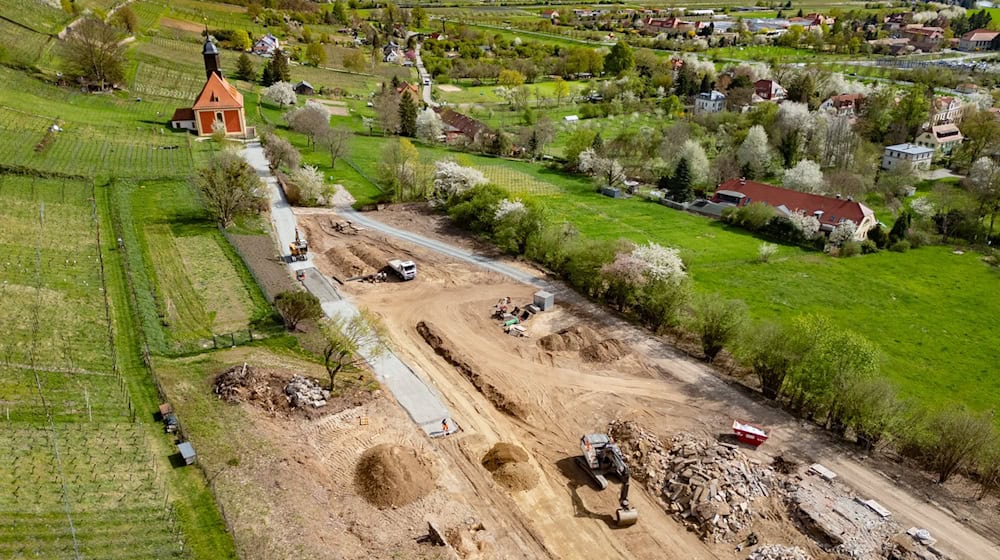Dilapidated pig fattening facilities or abandoned vineyards: in Saxony, many such derelict buildings are being demolished, unsealed and restored to their natural state.
The deputy head of Saxony's central land management department, Dieter Ruf, explains that the state-owned company converts these measures into so-called eco-points. Developers can buy these for planned projects - after all, compensatory measures are mandatory for construction projects that interfere with nature.
Agency renaturalizes areas and sells eco-points
The state-owned agency has currently upgraded around 220 hectares of land in a natural way. This has included unsealing areas, planting trees, creating biotopes, renaturalizing bodies of water and creating new habitats for animals. According to Ruf, more than 4.3 million eco-points are currently available through such measures, which can be purchased by developers in order to fulfill the requirements of the nature conservation authority.
High acceptance for removing eyesores
"The acceptance of these measures is very high among the population, because they usually remove eyesores that have been there for years," said Ruf. For example, an old, dilapidated pig fattening facility in the district of Zwickau was demolished and unsealed. A meadow is now flourishing where previously there were 2.2 hectares of dilapidated stables. These eco-points had been acquired by an automotive company for a new building.
Dismantling a nursery in the vineyards
Dismantling work is currently underway on the site of a former vineyard nursery in Dresden. The boiler house, shelters, garages and the remains of the greenhouses are being demolished and all paved areas are being unsealed. The area will then be landscaped as a meadow, which will be managed by an agricultural company in line with nature conservation regulations. The planning and construction costs amount to around 550,000 euros.
About two thirds of the upgraded areas will be used for state-owned measures such as road construction, flood protection measures or new government buildings. The requirements are higher if, for example, protected animal species are affected - then an equivalent habitat must be created for these animals elsewhere, as Ruf explains.
In contrast, those who want to build a conventional detached house usually do not have to worry about compensation. There, the requirements are already set out in the development plan.
Copyright 2025, dpa (www.dpa.de). All rights reserved




